East Palestine residents still displaced, suffering 1 year after toxic train derailment
In the one year since the toxic train derailment in East Palestine, Ohio, where 11 cars carrying hazardous materials spilled toxins into the environment, many of the residents still haven't returned home.
The spill forced hundreds of nearby residents out of their homes and sparked fears, as five tankers carried vinyl chloride, which posed serious health risks. Vinyl chloride burning can create dioxins, which are carcinogenic, according to the U.S. Environmental Protection Agency.
For the last year, residents like Ashley McCollum, have lived out of a Best Western hotel a few towns over.
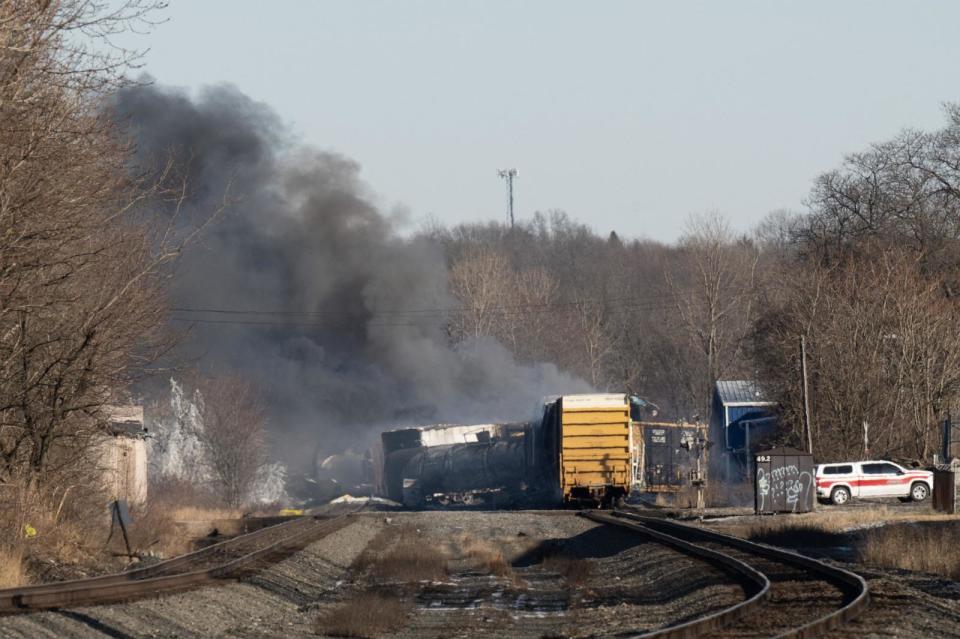
Last February, McCollum fled her house with her boyfriend and son Zane and two dogs. She's spent most of the year at this hotel paid for by Norfolk Southern.
Norfolk Southern is still paying for the relocation of roughly 40 other families, but that benefit is expected to run out Feb. 9.
McCollum said she'd rather be homeless than go back to East Palestine because she doesn't believe it's safe enough.
"Some people might not feel the same, but I know what my body's telling me and some people might not have that same effect but I know that my body's saying do not be here," McCollum told ABC News..
MORE: New body camera footage shows East Palestine toxic train derailment evacuation efforts
She noted that her family has been experiencing several health issues since the derailment including "rashing, numbness and tingling in your mouth, ear pain, blood in your ears, hair loss."
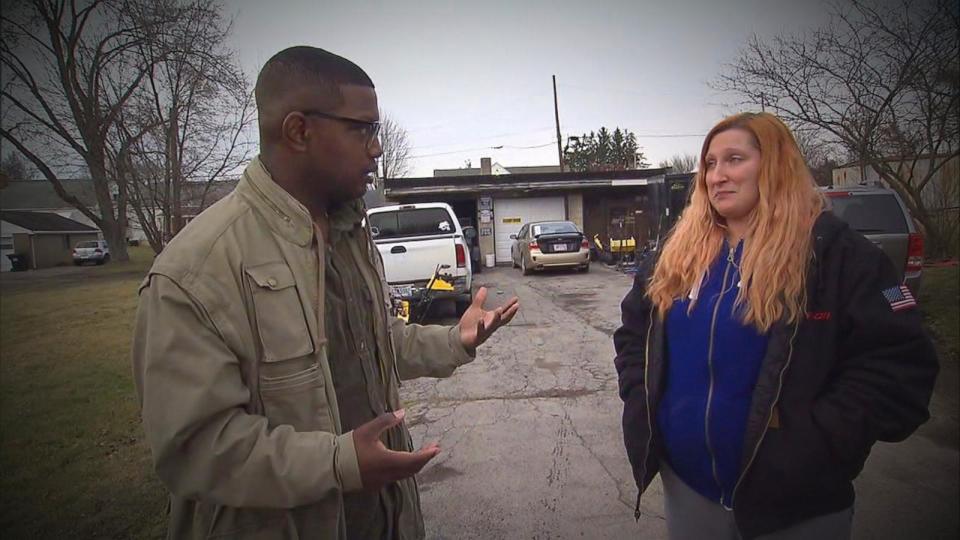
McCollum is not alone when it comes to ill health effects.
Lori and Wayne McConnell lived three miles from the derailment site in Pennsylvania and months after the accident their blood and urine tested positive for vinyl chloride.
Her blood also tested positive for benzene, another chemical found in the crash.
"I had headaches, a metallic taste in my mouth, burning watery eyes, tingling lips. I had muscle pain in my legs that was so intense," Lori McConnell told ABC News.
Wayne McConnell was diagnosed with male breast cancer, 18 weeks after the derailment. He said his doctors wouldn't rule out the cancer was caused by the chemicals.
"I can't say for sure, but it seems awfully coincidental," he said.
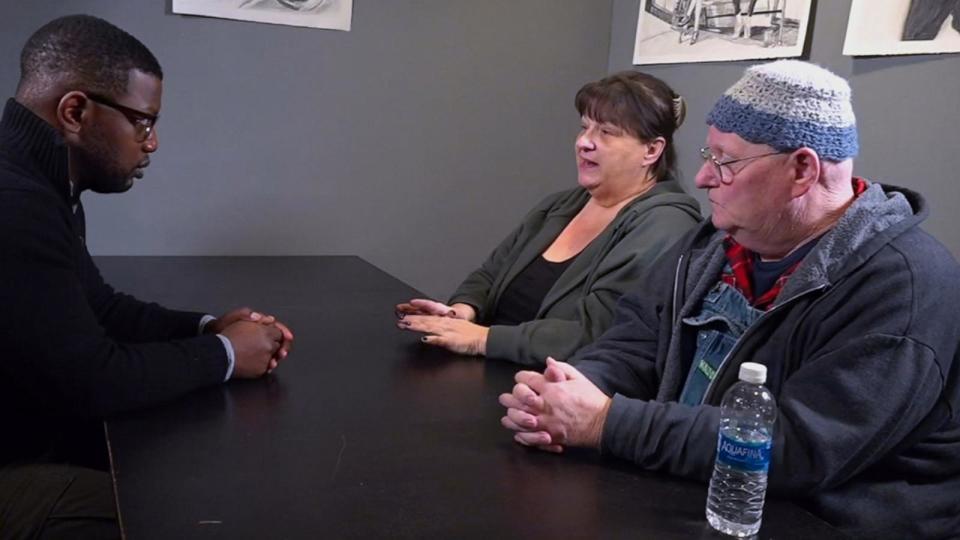
The O'Connell family enlisted the help of environmentalist Scott Smith to test their furnace filters. His findings confirmed their suspicions as the dioxin levels were 1,200% higher than normal levels.
Smith, who conducted tests on behalf of by several residents affected by the derailment, told ABC News since toxins like vinyl chloride are gas, they often affix to dust particles making furnace filters a focus point in his testing.
MORE: East Palestine derailment: Timeline of key events in toxic train disaster
Smith's data helped sway the Government Accountability Project to launch an investigation into the cleanup and testing efforts in East Palestine. The investigation is still ongoing.
Mark Durno, EPA Response Coordinator, responded to Smith's report and challenged them. "His data does have serious quality control problems based on a limited amount of data that I've looked at."
But Durno also acknowledged, "The data that I've looked at shows no red flags. The data falls right in line with the data that we've collected in soil."
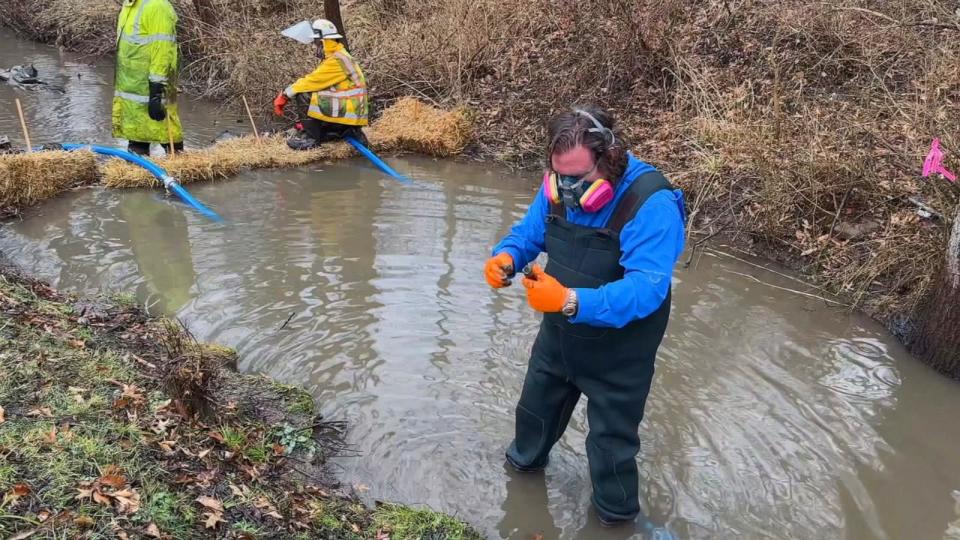
After collecting more than 45,000 samples, the EPA said in a statement last month, "While there is no evidence to suggest that additional contamination is present in areas other than those which are currently being addressed at the derailment site, we want to be sure."
Norfolk Southern and the EPA have begun the confirmation sampling phase of their cleanup, which they say is a final "double check." They say the derailment site could be back to normal by late summer, but the agency admits the cleanup hasn't been a perfect process.
"I very much feel confident this area safe. I can tell you I've been here from the very beginning here, and I'm not having issues," Chris Hunsicker, the railroad's incident command, told ABC News.
However, he added that he could not tell another person what they were going through.
Norfolk Southern has also sworn they would "make it right," and pledged millions of dollars in support to impacted communities in Ohio and Pennsylvania.
"What we want to do is look at how we can better communicate the risks and exposures that are happening, even though we're well below our health established limits," Durno said.
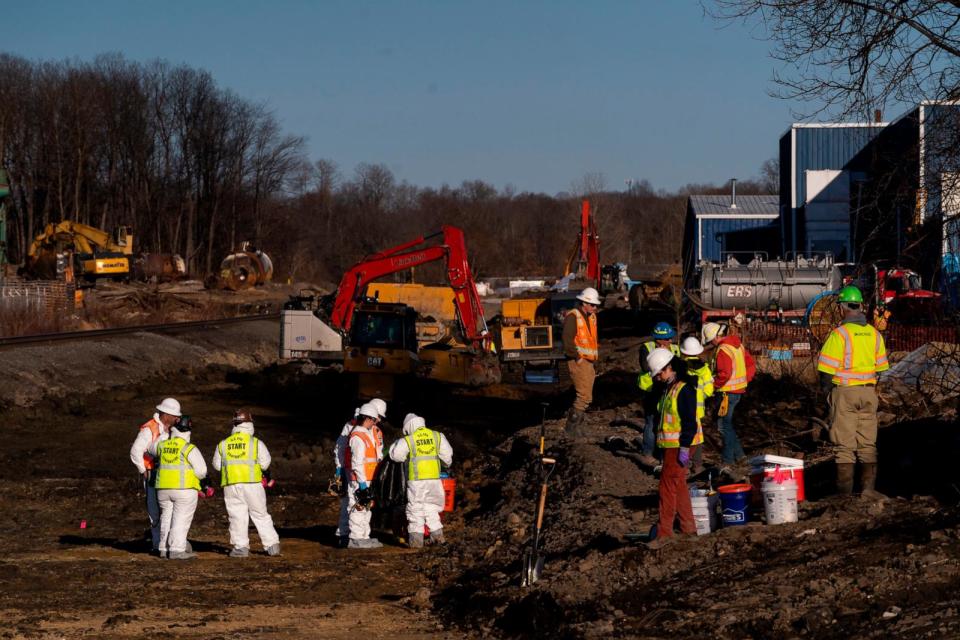
President Joe Biden announced he will visit East Palestine this month following an invitation from Mayor Trent Conway. An exact date has not been announced as of Thursday.
Some East Palestine residents however contend that there will never be a return to normal.
"People need to be held accountable for it. People need to hear what's going on with other people in town. Because this is me now," McCollum said.
ABC News' Jeremy Edwards, Sasha Pezenik, and Jared Kofsky contributed to this report
East Palestine residents still displaced, suffering 1 year after toxic train derailment originally appeared on abcnews.go.com

 Yahoo News
Yahoo News 
